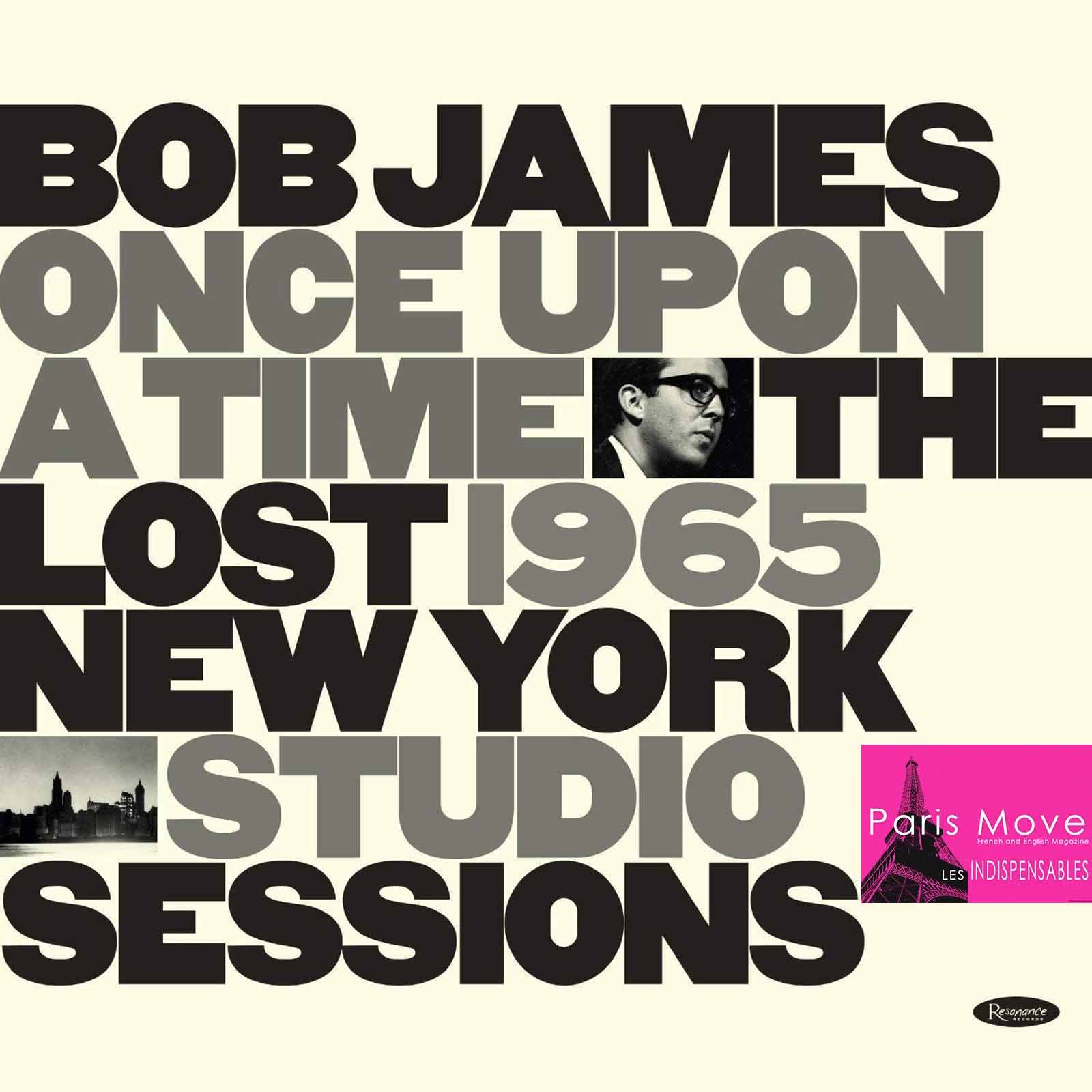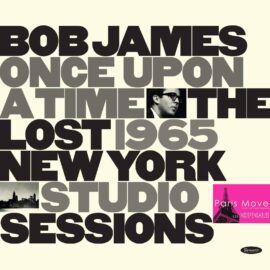| Jazz |

This album must be considered foundational in the career of Bob James. It was in 1962 that Quincy Jones first discovered the young pianist, and from that moment until the recording of this session, we can observe step by step the shaping of the immense artist the world has since come to know. I was only five years old at the time of this recording, and so my own discovery of James came much later, when at nineteen I stumbled upon Touchdown, which had been released the year before. I was instantly captivated. The music felt utterly singular in its time, blending the textures of African American culture with the refined language of jazz, all channeled through the voice of an extraordinary melodist. From that point forward, James became for me one of the greatest composers of our era, a musician who has never ceased to reinvent himself.
His personal career alone is impressive enough, but James is also one of the founding members of Fourplay, the landmark jazz-funk ensemble whose influence continues to resonate. Beyond that, there are the innumerable collaborations, the solo albums, and the frequent nods to classical music that reveal yet another side of his artistry. To interpret this merely as a flirtation with another genre would be a grave misreading. James is not bound by categories. He is, in the most essential sense, a lover of music itself, and of the arts in their broadest, most generous expression.
That is why this long-forgotten 1965 recording, unearthed only in 2020, is a revelation, a treasure trove that offers new insight into the process by which James’s art was built. Here we find him oscillating between bebop and contemporary classical idioms, already reaching toward world influences, searching yet self-assured. The melodies are luminous, the style already unmistakable. The grandeur of the artist stands in stark contrast with the modesty of the man, a trait often shared by geniuses of his kind.
Resonance Records, when announcing the release of Once Upon a Time: The Lost 1965 New York Studio Sessions, described it simply as “an important, previously unreleased collection.” The word “important” hardly does it justice. Much of this material, recorded at Columbia’s Wollman Auditorium with remarkable clarity by George Klabin, shows James working within the lyrical swing style that would eventually define his contributions to jazz in the 1970s and beyond. Yet just as striking are the glimpses of his experimental side, the bold, even percussive approach that until now had been scarcely documented on record.
It was Klabin who urged Bernard Stollman of ESP-Disk to take note of James. At the time, ESP was the crucible of avant-garde innovation, introducing artists like Albert Ayler, Ornette Coleman, and Sun Ra to the world. Stollman responded by releasing Explosions, James’s second album as a leader, later in 1965. One can trace even earlier signs of this adventurous spirit: on Resonance’s 2019 release Musical Prophet, a document of Eric Dolphy, there appears an expansive, forward-looking piece by James performed at the ONCE Festival in Ann Arbor in 1964. Until Resonance brought them to light, however, Klabin’s 1965 sessions remained in the shadows.
George Klabin himself, co-producing the album with Zev Feldman, reflected on this rediscovery: “Bob became a major figure in jazz, one of the fathers of smooth and fusion jazz. I never considered releasing these recordings until recently, when we worked together on Eddie Daniels’s Night Kisses, an homage to Ivan Lins.”
To my mind, it is essential to recognize Bob James today as a leader of contemporary jazz on the level of Miles Davis, Joe Zawinul, or Wayne Shorter. The evidence for such a claim is overwhelming, and it is only reinforced by recollections like that of percussionist Robert Pozar, shared in the Resonance box set. Pozar, who had performed alongside James in Ann Arbor’s avant-garde circles, recalled: “Bob James, in his freshman year of college, could wipe out anybody. He was a tough guy.”
The second part of Once Upon a Time captures a live trio performance from October 9, 1965, with bassist Vishnu (Bill) Wood of Detroit and drummer Omar Clay, another of James’s collaborators from his Michigan years. The set includes probing and deeply felt interpretations of Sonny Rollins’s “Airegin” and Miles Davis’s “Solar.”
What becomes clear is that Bob James cannot be confined to a single style, school, or tradition. Wherever a rhythm, an idea, or a sound moves him, he seizes it and makes it his own. That freedom has defined his career, which continues to this day with concerts and recordings. He remains an artist by necessity, driven not by market or fashion but by the unyielding force of his own creativity. Few things are more worthy of admiration.
“I have immense respect for Bob James,” Feldman noted in his comments at the time of the album’s release, “and Once Upon a Time shows us all why. The paths he has taken, the dimensions of music he has explored, from funk and R&B to straight-ahead jazz, from collaborations with Sarah Vaughan to the avant-garde, are staggering. His influence is difficult to overstate.”
The recordings themselves are of extraordinary quality, on par with the brilliance of the music they contain. James plays here with a depth and intensity that feel greater than ever, flanked, as always, by remarkable musicians. Yet, for me, nothing surpasses the experience of hearing Bob James live: the joy he takes in making music with his peers, the unrelenting search for tomorrow’s sound, the constant pursuit of renewal. His is a career exemplary in every respect. Thank you, Mr. Bob James.
Thierry De Clemensat
Member at Jazz Journalists Association
USA correspondent for Paris-Move and ABS magazine
Editor in chief – Bayou Blue Radio, Bayou Blue News
PARIS-MOVE, September 4th 2025
Follow PARIS-MOVE on X
::::::::::::::::::::::::
Musicians & Track Listing:
January 20, 1965 (with Larry Rockwell on bass and Robert Pozar on drums):
Serenata (5:46)
Once Upon A Time (7:00)
Lateef Minor 7th (7:36)
Variations (6:22)
October 9, 1965 (with Bill Wood on bass and Omar Clay on drums):
Airegin (4:42)
Indian Summer (5:10)
Solar (5:22
Long Forgotten Blues (9:01)

